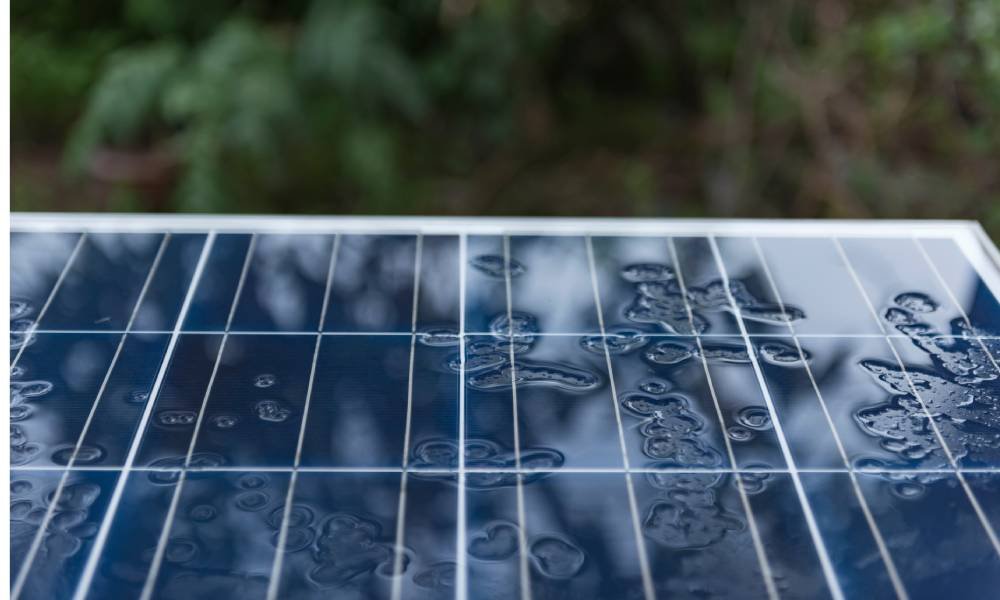Homeowners are eager to reap the eco-friendly and cost-efficient advantages of solar panels. However, living in a climate with heavy rain and cloudy days prompts some concerns. Here’s what you need to know about the effects of rain on solar panels and how to maximize their efficiency in stormy weather.
The Effects of Rain on Solar Panels
Solar panels are durable and weather-resistant. Nevertheless, some environmental conditions will affect their efficiency.
Rain’s Surprising Benefits
While it might seem counterintuitive, rain can have a positive effect on solar panels. One of the most significant benefits is a free wash! Pollen, dirt, and bird droppings can accumulate on the surface of solar panels, reducing their ability to absorb sunlight. Rain helps to wash away these contaminants for a cleaner surface.
Drawbacks During Heavy Storms
Stormy weather is a big reason why your solar panels aren’t producing ample energy. When clouds cover the sky, they limit the amount of sunlight that reaches the panels. This can lead to a noticeable decline in the amount of electricity generated. Dim conditions caused by thick cloud cover can also reduce the amount of energy solar panels can produce.
Tips for Optimizing Solar Panels in Rainy Weather
You can change how rain affects solar panels by selecting the right solar panel products. Here are some tips to ensure your solar system functions at optimal performance, no matter the weather.
Choosing Advanced Solar Panels
Climates with frequent heavy rain demand solar panels specifically designed for this type of environment. These panels come with improved surface coatings that repel water and dirt, enhancing their performance in less-than-ideal conditions.
Using a Backup System
Homeowners need to consider the average sunny days in their region and the frequency and intensity of rainfall. During seasons with frequent rain, adding a backup system with stored solar energy can ensure a consistent energy supply without relying on the grid. This approach can mitigate the impact of prolonged rainy periods on overall energy production.
Selecting a High-Quality Junction Box
A critical yet overlooked aspect of solar panel installation is choosing a high-quality junction box for housing the electrical connections. Investing in a strong, protected junction box can prevent water ingress and electrical failures for long-term system efficiency. Homeowners should select a durable junction box during installation to avoid future maintenance issues and potential system downtime.
The rain shouldn’t stop you from decreasing your carbon footprint. No matter where you live, you can install solar panels and reap the benefits!
